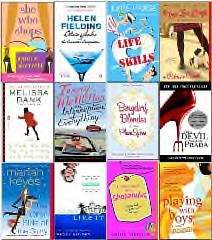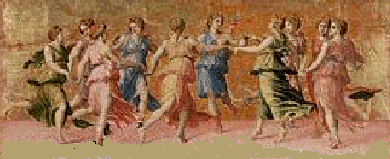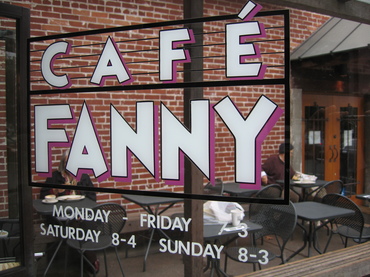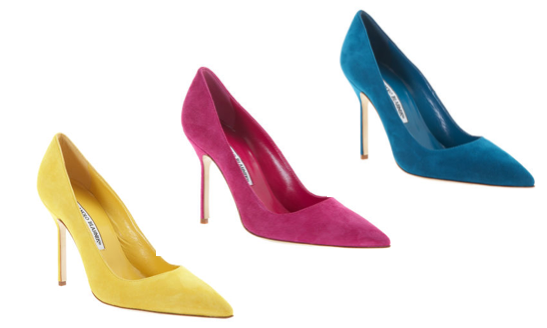How Do I Know?
Because a Top-of-the-Line Librarian Said So
By D.D. Scott
How ‘bout we dive into the ‘Chick Lit Is Dead or Is It?’ dilemma from one heckuva fabulous platform – drum roll please – let’s hear what Top-of-the-Line Librarian (or Top-of-the-Stacks in her case) Susan Gibberman has to say.
Susan, the Head of Reader Services for the Schaumburg (IL) Township District Library plus the 2008 RWA Librarian of the Year, told me she can “definitely say Chick Lit is alive and well.”
I first met Susan at RWA 2009 in Washington D.C. when she gave a fabulous workshop on the romance industry from a librarian’s perspective. She told the packed room, “Chick Lit is not dead.” Again, this past April in 2010, I had the pleasure of seeing Susan a second time, when we were in line at RT10 in Columbus OH for the E-Book Author Signing Event. And again, Susan said, “talk to me or any librarian anytime about Chick Lit, and we’ll tell you it is sooo not dead.”
So ‘talk to her’ I did this past week, knowing she’d be the perfect industry expert to kick-off our RWA Chick Lit Chapter Blog.
Take a look at the Chick Lit To-The-Point questions I asked Susan plus her beyond-interesting answers:
1.) From your top-of-the-line librarian perspective, is Chick Lit Dead?
I’m not so sure of being “top of the line,” but I can definitely say Chick Lit is alive and well.
2.) What are the circulation numbers for the Chick Lit genre, and where do those numbers fall when compared to all genres in library circulation plus within just the fiction circulation numbers?
Libraries don’t tend to separate out Chick Lit as a genre by itself (we tend keep it fairly general – Fiction, mystery, SciFi, etc.), so it’s hard to pull out specific numbers for circulation statistics. If the book is printed in hardcover, it may be in general fiction; paperback editions could be filed in fiction or, if the library has one, a separate paperback collection (and maybe sub-categorized as paperback romance). In looking at authors who are typically considered “Chick Lit” authors, their books circulate very well, but I couldn’t give you a number. Since they are typically filed with romance titles, in my library, romance novels probably equal mysteries for fiction circulation, and they would both be tied for the top.
3.) Do patrons frequently request Chick Lit?
Chick Lit is a term used by authors and the publishing industry, not by the average patron. Patrons will tend to ask for either a specific author or, more commonly, “I just loved Bridget Jones’s Diary and I’d like to read another book just like it.”
4.) What authors and sub-genres do you classify as today’s Chick Lit?
The first authors that spring to mind (in no particular order or importance) would be Helen Fielding, Sophie Kinsella, Jane Green, Jennifer Weiner, Marian Keyes, Meg Cabot (naturally, as a librarian, I feel obligated to research this out and provide you with a comprehensive list, but time is a key factor here). I don’t want to necessarily classify something as “chick lit,” I look at the storyline – something featuring a modern-day working woman (probably late 20s to early 30s thirties); these stories, like most romances, have an emotionally satisfying ending, the end relationship doesn’t necessarily have to end in marriage as in traditional romance. In many cases, the characters (and relationship – showing both good and bad moments) can continue in other books by the author.
5.) Have libraries re-classified Chick Lit like the publishing industry has – for example, do you still call it Chick Lit or is that a ‘no-no taboo label’? And if you have re-named the genre, what do you now call it…i.e. something like ‘humorous womens’ fiction’ or romantic comedy?
It’s not a matter of avoiding a label, but we just don’t tend to use them because that’s not what patrons use when they ask for help in finding something good to read. Most often, we’ll ask them to tell us about a book they’ve read and enjoyed (part of the Readers’ Advisory interview technique) and we listen for clues – are they talking about setting, characters, or plot? By the way a patron describes a book they enjoyed, we can help them find similar books. If they are describing what I consider Chick Lit, then I can recommend similar authors.
6.) Speaking of romantic comedy – is that its own genre or do you consider that part of Chick Lit?
Not all romantic comedies are Chick Lit and not all Chick Lit are romantic comedies, although I think most people will think of romantic comedies when they think of Chick Lit. I find that there’s a tremendous range in the area of Chick Lit – from more serious women’s fiction-type stories to comedies to mysteries; and the sensuality factor of the romance also runs the gamut.
7.) What sub-genres of Chick Lit are most popular with patrons – i.e. Mommy Lit, Hen Lit, etc. Or do you even use those terms?
Again, we don’t really use those kinds of labels. What we do however, is create displays by a theme. So we might have a display of MomLit, but we’d call it something like Love the Second Time Around (again, I’m making this up on the fly, so don’t take me literally). Our display titles try to give an idea of books on a particular theme.
8.) Why do you think Chick Lit has been declared “dead”? And what is your response to that proclamation?
IMHO, the genre has been declared “dead” because the authors don’t want to be classified as a “ChickLit” author; and, because I attend other genre conferences, I’ve heard other authors in other genres complain about essentially the same kind of classifications. If you’re pigeon-holed like that, I believe you automatically limit your readership. That’s probably my biggest complaint against the publishing industry. I wish they would just put authors into the general categories and talk about the books the way patrons do – plot, setting, characters. That’s how the readers want to find new books or new authors.
9.) What are your thoughts on the forever, always and beyond debate of Lits vs. Chicks?
As long as the publishing industry tries to make these sub-genres, we will always have the debate over what’s what and try to say one is better than another. We, as Readers’ Advisory Librarians, don’t make judgments over what someone wants to read. And, if a book is well written, no genre (or sub-genre) is “dead” (maybe just resting) and readers will find them.
See why Susan is my Go-To-Expert?
 She knows what readers love and what they’re asking for, and she gives readers and writers of Chick Lit as well as all genres something huge to cheer about. It’s not about a book’s “label”. It’s all about whether or not that book’s characters, plot, and settings grab readers and refuse to let go ‘til ‘The End’. Readers are the true experts on what’s in and what’s out. Not the publishers and the publishing industry.
She knows what readers love and what they’re asking for, and she gives readers and writers of Chick Lit as well as all genres something huge to cheer about. It’s not about a book’s “label”. It’s all about whether or not that book’s characters, plot, and settings grab readers and refuse to let go ‘til ‘The End’. Readers are the true experts on what’s in and what’s out. Not the publishers and the publishing industry.
So go for the gusto. Read and write the stories you like. And know that the rest of the world’s readers will help you decide what’s hot and what’s not-so-hot.
Sexy Sassy Smart Chick Lit Is Sooo Not Dead Wishes — D. D. Scott
D. D. Scott
BOOTSCOOTIN’ BLAHNIKS (Aug. 2010 Amazon’s Kindle & Smashwords)
MUSE THERAPY (Oct. 2010 Amazon’s Kindle & Smashwords)
“Only time can heal your broken heart, just like only time can heal his broken arms and legs.”






 When I moved from California to New York, the divas agreed to come, but they still insist on having café au lait and pain au chocolat flown in from
When I moved from California to New York, the divas agreed to come, but they still insist on having café au lait and pain au chocolat flown in from  So that’s why my writing space is full of junk like this, and why my computer cover is pink.
So that’s why my writing space is full of junk like this, and why my computer cover is pink.



 In The Fire in Fiction, agent and author
In The Fire in Fiction, agent and author  New York Times bestselling author
New York Times bestselling author 
